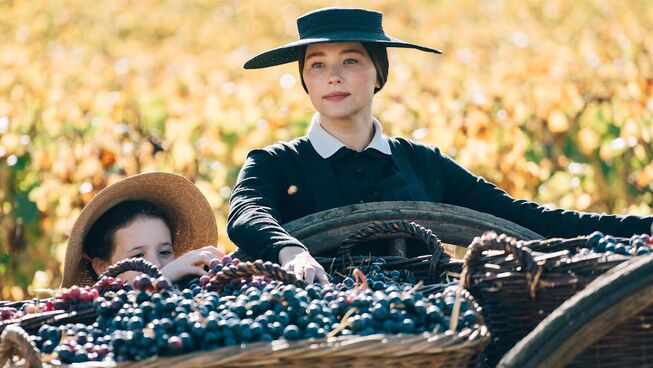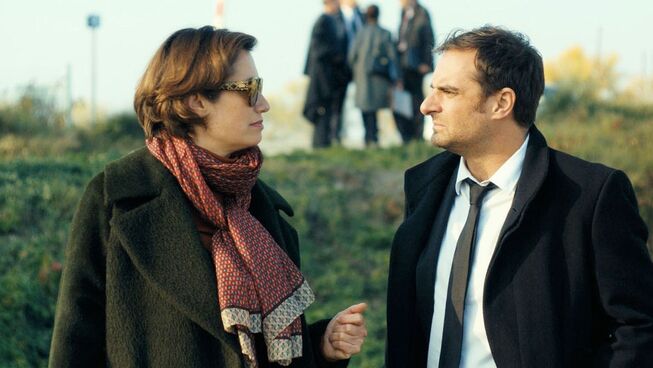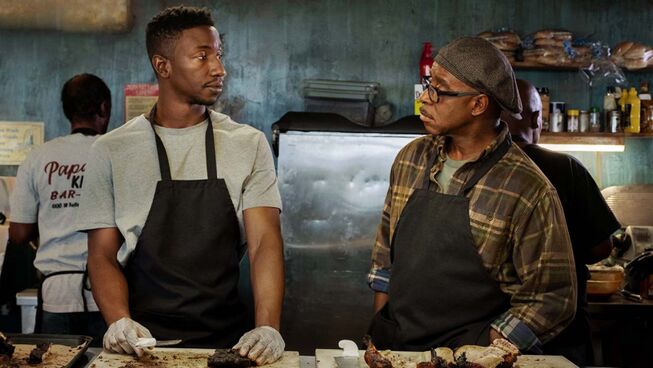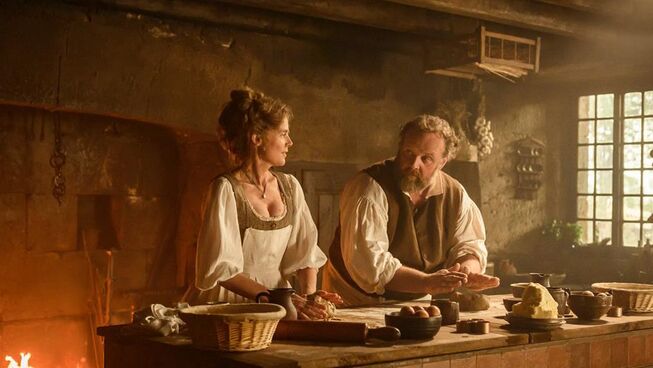Widow Clicquot

⭐️ ⭐️ ⭐️(out of 5 stars)
For all fans of the modern interpretation of champagne, Barbe-Nicole Ponsardin Clicquot (Haley Bennett) is the revolutionary winemaker who made your joy in the bubbly a reality. Director Thomas Napper delves into the historical accounts in Tilar J. Mazzeo’s biographical accounts in The Widow Clicquot: The Story of a Champagne Empire and the Woman Who Ruled It. This story is perfectly suited for resident historians, the avid connoisseur of the bubbly, or those looking for a female hero from the past.
Barbe-Nicole Ponsardin Clicquot married into the Clicquot family business in her short love affair with François (Tom Sturridge), who died a few years after their life together. Yet, not long after the couple came together, her husband became a partner with his father and leader within the wine industry, Philippe Clicquot (Ben Miles). Yet, as he suffered under pressure to succeed and struggled with mental health issues that fed his drive to innovate, François died not too long after this partnership, leaving the estate in the hands of Barbe-Nicole. Despite Napoleonic laws forbidding women from running businesses, this rule was excluded if the business was run by a widow. She wanted to honour the memory of her beloved husband and show her passion for this exceptional vineyard by taking on the role of business leader. Under extreme opposition and difficulties, Widow Clicquot worked with her loyal band of workers to innovate and push the boundaries of the wine industry, particularly in creating new versions of champagne during this tumultuous time in French history.
As Barbe-Nicole Ponsardin Clicquot’s life unfolds on screen, Thomas Napper’s cinematic eye cuts the line between reality and dream states as he relies on the widow’s memories to fill in the narrative gaps of the Clicquot’s challenging marriage. Most of the individuals depicted are historically accurate and after François’ death, historians would agree with how most of this story would unfold. Still, a third of the film resides in the past and these accounts have the feel of modern interpretation of certain accounts opposed to actual history. The extremities of François’ mental health issues and his implied bisexuality gives this production the feel of a modern whitewash of the actual facts that tend to taint the rest of the story. All that is to say that, the history was rather fascinating.
At the same time, telling the story is laborious and will only appeal to the most devoted historians and viewers. To make it more appealing to Western audiences, the cast is predominantly English, which undermines the French heritage to a point but is not enough to derail the whole film. Haley Bennett, Tom Sturridge, and Sam Riley, as wine purveyor and eventual lovers of Louis Bohne, all deliver believable and compelling performances that make the pacing worth enduring. The journey has the feel of an artist painting a canvas of the French countryside as he attempts to capture the beauty and tragedy needed to make a harvest successful. Until it all leads to the less-than-believable conclusion that has the makings of a contemporary statement against male toxicity that undermines the true purpose of showcasing this historical figure.
Widow Clicquot has all the elements for the allure that comes with looking upon the majestic French countryside and a charming cast. Yet, in its attempt to tap into modern-day talking points, the elegance of the narrative distracts from the ability to celebrate this fascinating woman and all she achieved.
REEL DIALOGUE: Being allowed to innovate
Widow Clicquot offers a rich tapestry of themes for discussion. Still, her innovation ability is the standout element celebrated in her story. The chemistry and artistry of working the vines to do her bidding were compelling to anyone interested in this field of study.
This production shows mankind's creativity and how it can be found in any field of business or horticulture. It also shows the innovative winemaking process, which delivers new ways for people to experience the joys of wine consumption. It is inspiring to see how creative individuals can continue to push the edge of expectation and deliver something new for their customers.
Looking at history and even the Bible, people have continually taken society to new levels of invention. Many worldwide would credit this desire to create as a family trait God gave us.
"In the beginning, God created the heavens and the earth. The earth was without form and void, and darkness was over the face of the deep. And the Spirit of God was hovering over the face of the waters. And God said, “Let there be light,” and there was light. And God saw that the light was good." Genesis 1
God began with nothing and brought forth, well, everything. This includes man and woman; the Bible says we bear His image. This may help to answer why mankind is so innovative: because we take after our creator Father. It's in the family.











